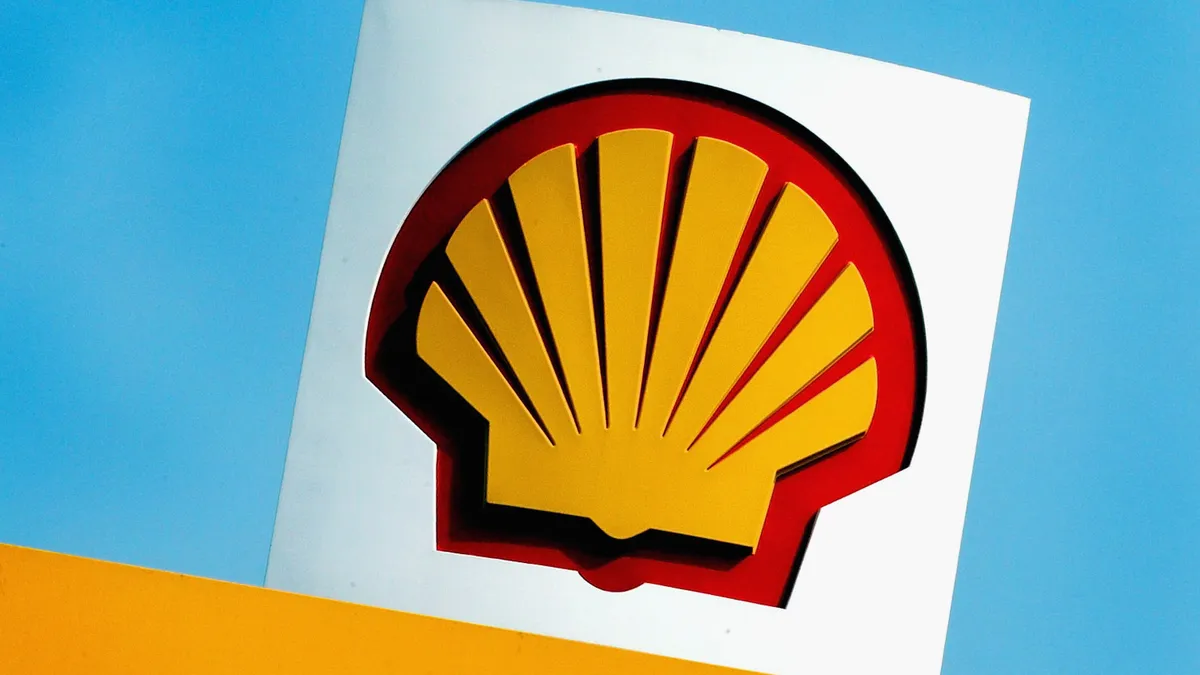Dive Brief:
- Shell shareholders approved a diluted energy transition strategy and rejected a resolution from shareholder activist Follow This to align its scope 3 emissions reductions targets with the Paris Agreement at the company’s annual meeting Tuesday.
- The oil giant rolled out its updated transition strategy in March, scaling back an emissions reduction goal and scrapping another entirely. More than one-fifth of shareholders opposed the strategy at the annual meeting, which was approved with 78% support.
- “Shell cannot continue ignoring these investors,” Follow This CEO Mark van Baal said in a release. The proposal from Follow This received 19% support from shareholders, which van Baal said “represents a shareholder rebellion.”
Dive Insight:
Shell’s newly approved energy transition strategy officially changes the decarbonization plan the company first announced in 2021. Shell said its goal to reach net-zero emissions by 2050 is aligned with the Paris Agreement, and the company’s directors believe the transition plan will allow the company to reach those goals.
Under the updated transition plan, the energy giant will look to reduce the carbon intensity of its products by 2030, a pivot from a prior commitment to decarbonize its products by 20% by the same date. The updated strategy also entirely discarded a goal to decarbonize its products 45% by 2035.
“Shell wants to lead in the decarbonisation of transport using the strength of its brand, deep customer relationships and global reach,” Shell’s proxy materials said. “As the energy transition progresses, Shell expects to sell more low-carbon products and solutions, and less oil products including petrol and diesel.”
However, such emissions reductions are expected to be offset by Shell’s plans to expand liquified natural gas production 20-30% by the end of the decade.
“Big Oil can make or break the Paris Climate Agreement,” van Baal said in the release. “These investors realize that their votes are key to changing Big Oil. Their peers will follow one day.”
Follow This’ proposal was co-filed by 27 other Shell shareholders in January, asking the oil major to align medium-term scope 3 emissions — specifically emissions generated through their products’ use — reduction targets with the global goal of limiting temperature rise. Given the board’s belief that its energy transition plan is aligned with Paris Agreement goals, Shell told investors to reject the resolution and said it was against “good governance and shareholder interests.”
Follow This rejected both of those claims in an investor briefing the organization sent out May 13. The shareholder advocacy organization said its proposal is good governance as it provides “clear direction without being prescriptive.” Additionally, Follow This said Shell only accounts for half of its products — excluding LNG — in its new plans and its accounting standards for oil products sales make the goals “impossible to verify.”
The Follow This resolution had the public backing of Dutch investor MN, a member of the $68 trillion environmental investment group Climate Action 100+. However, one of Shell’s largest shareholders, Norges Bank Investment Management, came out against the resolution last week preceding the vote. NBIM, which manages the Norwegian government pension fund, owns 3% of Shell’s stocks. A similar proposal from Follow This received 20% support last year, which van Baal said was more votes than NBIM, BlackRock, Vanguard and State Street own combined.
“These institutional investors understand mitigating climate risk to be fundamental to their fiduciary duty,” van Baal said when introducing the resolution at Tuesday’s meeting. “They regard fossil fuel emissions as a significant risk to the global economy and, by extension, their assets.”
When the votes of this AGM are shown, we will know how many shareholders are real stewards of the global economy and how many shareholders enable Shell and other oil majors to continue to cause climate breakdown [and] jeopardize the long-term future of their companies,” he added.












